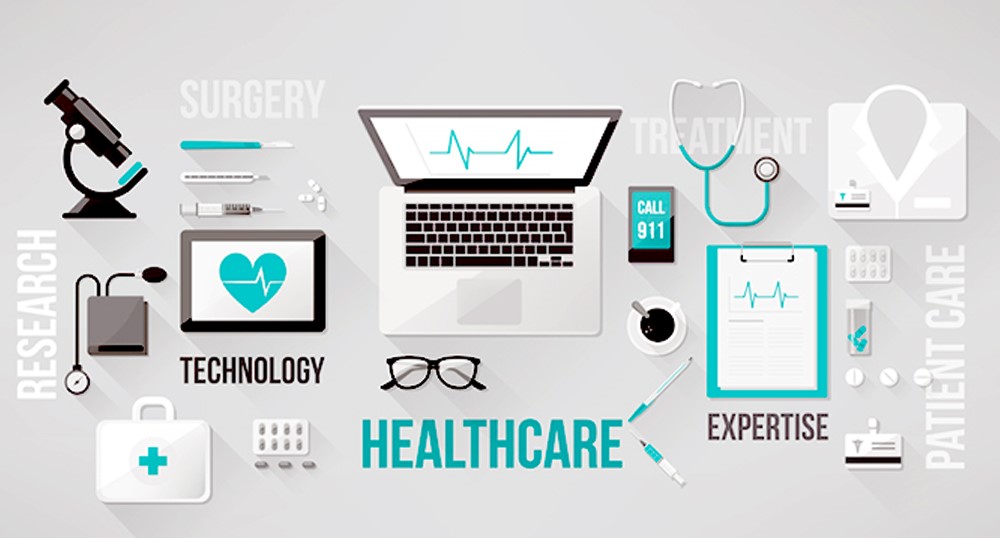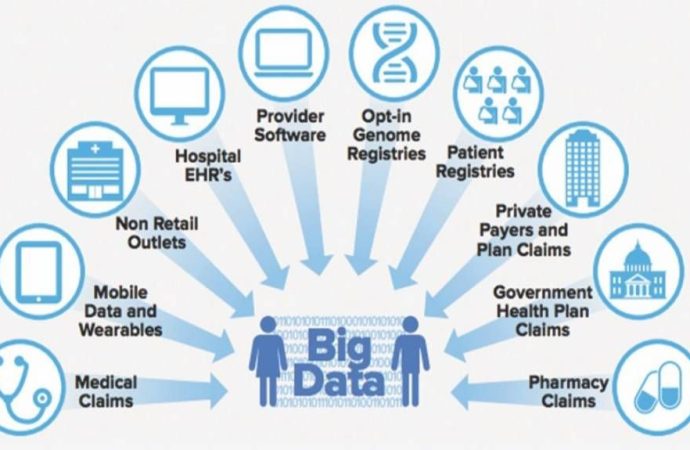In recent years, the term “Big Data” has become a buzzword across various sectors, including healthcare. As the world continues to generate vast amounts of data at an unprecedented rate, the healthcare industry is harnessing this information to drive significant improvements in population health management. The integration of Big Data into healthcare systems is transforming
In recent years, the term “Big Data” has become a buzzword across various sectors, including healthcare. As the world continues to generate vast amounts of data at an unprecedented rate, the healthcare industry is harnessing this information to drive significant improvements in population health management. The integration of Big Data into healthcare systems is transforming how healthcare providers, policymakers, and researchers approach population health, offering new insights and solutions to complex health challenges.
Understanding Big Data and Population Health
Big Data refers to the massive volumes of structured and unstructured data generated from various sources, including electronic health records (EHRs), wearable devices, social media, and genomic sequencing. This data is characterized by its volume, velocity, variety, and veracity, making traditional data processing methods inadequate for analysis. Advanced analytical tools and techniques, such as machine learning and artificial intelligence, are employed to extract meaningful insights from this data.
Population health, on the other hand, focuses on the health outcomes of a group of individuals, including the distribution of such outcomes within the group. It aims to improve the health of the entire population while reducing health disparities among different segments. By leveraging Big Data, healthcare providers can better understand the factors influencing population health and develop targeted interventions to address specific health issues.
Enhancing Disease Surveillance and Prevention
One of the most significant impacts of Big Data on population health management is its ability to enhance disease surveillance and prevention. By analyzing data from various sources, healthcare providers can detect patterns and trends that indicate the emergence or spread of infectious diseases. For instance, during the COVID-19 pandemic, Big Data analytics played a crucial role in tracking the virus’s spread and informing public health interventions.
Moreover, Big Data enables predictive modeling, allowing healthcare professionals to anticipate disease outbreaks and implement preventive measures proactively. This capability is particularly valuable in managing chronic diseases, such as diabetes and heart disease, where early intervention can significantly improve patient outcomes and reduce healthcare costs.
Personalizing Healthcare Interventions
Big Data is also revolutionizing the way healthcare interventions are personalized. By analyzing individual and population-level data, healthcare providers can identify specific risk factors and tailor interventions to meet the unique needs of different patient groups. This approach, known as precision medicine, is gaining traction as a means to improve treatment efficacy and reduce adverse effects.
For example, Big Data analytics can help identify genetic markers associated with certain diseases, enabling healthcare providers to develop personalized treatment plans based on a patient’s genetic profile. Additionally, data from wearable devices and mobile health applications can provide real-time insights into a patient’s lifestyle and behavior, allowing for timely interventions and continuous monitoring.

Picture by: Yandex.com
Improving Health Equity
Health disparities remain a significant challenge in many communities, with factors such as socioeconomic status, race, and geographic location contributing to unequal health outcomes. Big Data offers a powerful tool for identifying and addressing these disparities. By analyzing data on social determinants of health, healthcare providers can gain a deeper understanding of the root causes of health inequities and develop targeted strategies to address them.
For instance, Big Data can reveal patterns of healthcare access and utilization among different population groups, highlighting areas where interventions are needed to improve health equity. Policymakers can use this information to allocate resources more effectively and design programs that address the specific needs of underserved communities.
Challenges and Considerations
While the potential benefits of Big Data in population health management are immense, several challenges must be addressed to fully realize its potential. One of the primary concerns is data privacy and security. With the increasing amount of sensitive health data being collected and analyzed, ensuring the confidentiality and integrity of this information is paramount. Healthcare organizations must implement robust data protection measures and comply with regulations such as the Health Insurance Portability and Accountability Act (HIPAA) to safeguard patient information.
Another challenge is the integration of disparate data sources. Healthcare data is often siloed across different systems, making it difficult to obtain a comprehensive view of population health. Efforts to standardize data formats and improve interoperability are essential to enable seamless data sharing and analysis.
Additionally, the complexity of Big Data analytics requires skilled professionals who can interpret and apply the insights generated. Investing in workforce development and training programs is crucial to equip healthcare providers with the necessary skills to leverage Big Data effectively.
The Future of Big Data in Population Health Management
As technology continues to evolve, the role of Big Data in population health management is expected to grow. Emerging technologies such as the Internet of Things (IoT) and blockchain hold promise for further enhancing data collection, analysis, and security. The integration of these technologies with Big Data analytics could lead to more accurate and timely insights, ultimately improving population health outcomes.
Moreover, the growing emphasis on value-based care is driving the adoption of Big Data analytics in healthcare. By focusing on quality and outcomes rather than volume of services, healthcare providers are increasingly using data-driven approaches to improve patient care and reduce costs.
In conclusion, Big Data is transforming population health management by enabling more effective disease surveillance, personalized interventions, and efforts to improve health equity. While challenges remain, the continued advancement of technology and data analytics holds great promise for enhancing the health and well-being of populations worldwide. As healthcare providers, policymakers, and researchers continue to harness the power of Big Data, the potential for positive impact on population health is vast and exciting.
















